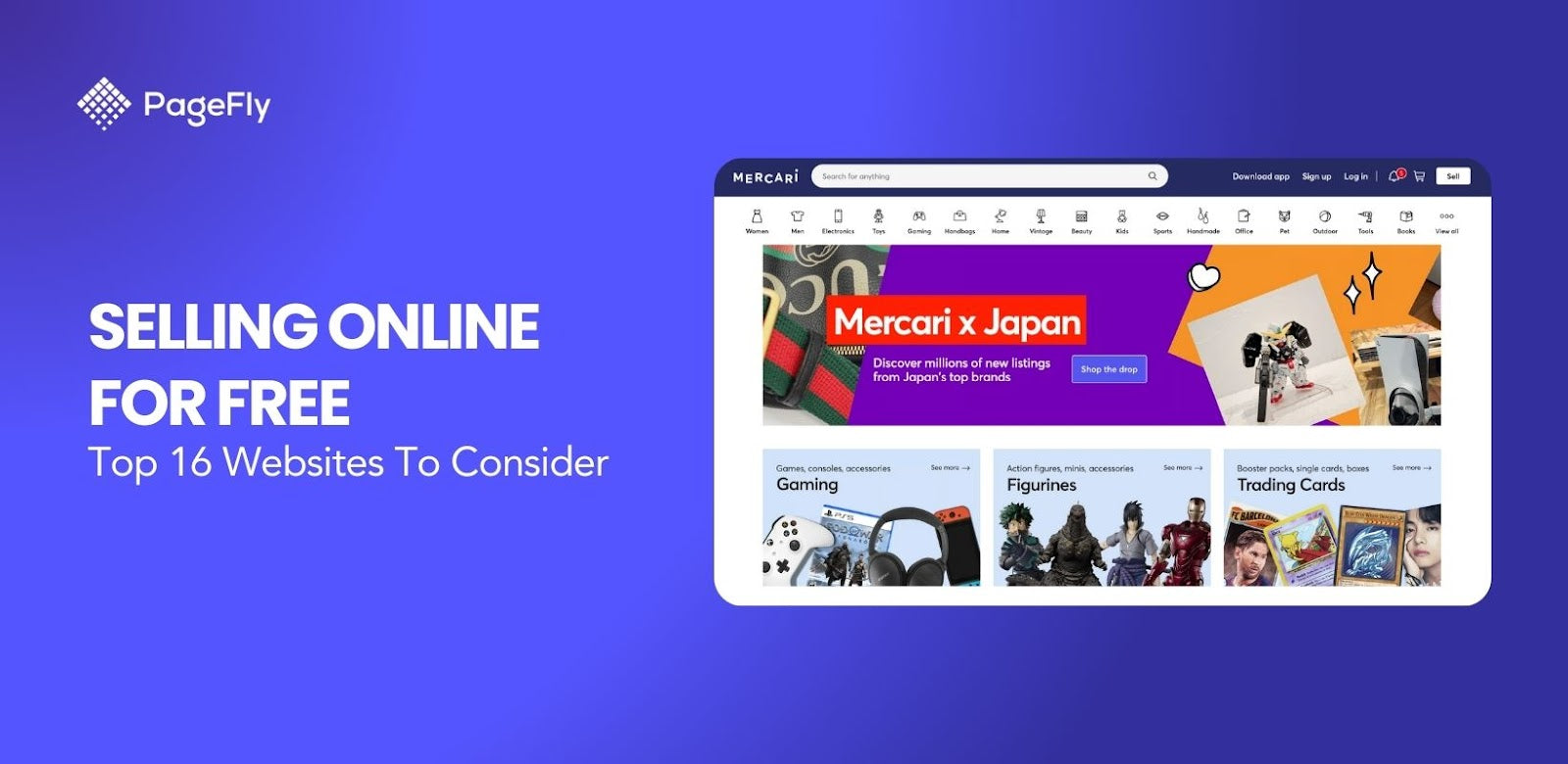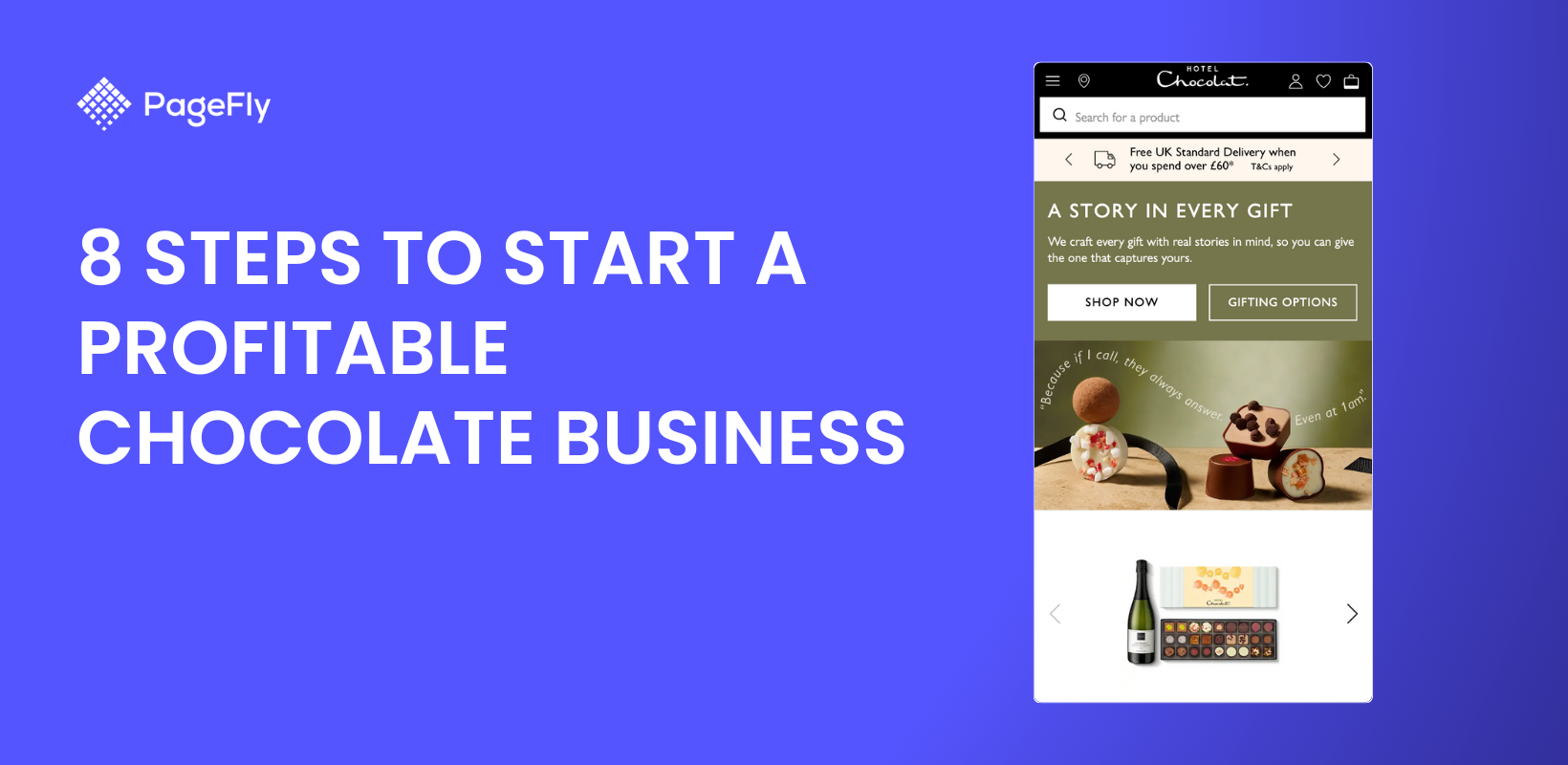Do you have a great product and are eager to bring it to the market? However, you might be unsure about choosing the right business model - wholesale vs retail. In today's article, we will provide you with the ultimate guideline to help you understand the differences between wholesale and retail, and the various types of these two trade kinds.
By the end, you'll have a comprehensive overview of these two business models, making it easier for you to make an informed decision for your venture.
I- A Brief Look Of Wholesale Vs Retail
Before we dive into the details of wholesale vs retail, let’s take a few minutes to have a brief look at these two terms. After this section, you will understand what wholesale and retail truly mean.
1. How Does A Wholesale Business Work?
A wholesale or wholesaler are companies that sell goods or services in bulk to other businesses. Wholesalers often sell their products at lower prices because their customers can get a high number of products. For example, Pepsi Co. or Alibaba are typical wholesale businesses.
When you launch a wholesale business, you can gain more benefits because of the huge orders, mass production cost and the less fee for marketing you have to spend.
The formula for wholesale price seems to be easy to follow: Wholesale Price = Cost Price + Profit Margin. However, prior to putting this formula into practice, wholesalers must conduct market research and accurately calculate their manufacturing costs.
2. How Does A Retail Business Work?
Most retail businesses sell a small number of services or goods, especially in comparison to wholesale companies. A retail business is one that distributes its final products directly to its customers. Macy’s and Bed Bath & Beyond are classical examples of retail business models.
Retailers have the flexibility to purchase products from wholesalers, manufacturers, or even other retailers, and then sell those products directly to customers. That’s why, their selling retail prices are higher than wholesalers because of the markup and their profit insurance.
You can calculate the price of your retailing products by using the following formula: Wholesale Price / (1 - Markup Percentage) = Retail Price. But before you calculate, you need to research the market to have a general understanding of how much other retailers set their prices. And then, you turn back your product to adjust the prices based on your wholesale prices.
II- Key Differences Between Wholesale Vs Retail
Now, let's move on to one of the most important parts: the differences between wholesale and retail. In fact, there are several differences between running a wholesale business versus a retail business. To make this easier to remember and understand, you can follow the 6 key standards, which serve as lodestars. These will help clarify the distinction between the two terms
1. Targeted Customers

The first different point between wholesale and retail is the target customer. The target customers of wholesalers are other businesses (called B2B, business to business) which can be retailers, distributors, or manufacturers.
On the other hand, the target customers of retailers are the end-users (also known as B2C, business-to-customers). In other words, retailers offer products and directly sell them to customers.
2. Products’ Quantity

Wholesalers simply sell products in bulk and, at times, offer discounts to incentivize higher order volumes from customers. Depending on the specific product type, some wholesalers may set a minimum number of products per order, which can range from 10 to even 10,000 units, in order to obtain the most reasonable prices.
On the other hand, retailers sell directly to customers, often offering products in small quantities. Regardless of whether consumers buy one or ten items, retailers generally maintain consistent prices per unit.
3. Products Pricing

Wholesalers often offer a vast number of products and big sales. Especially, if they have wholesale competitors in the same industry, more reasonable prices will be a big advantage. So it's easy to understand why they often provide lower prices to their customers compared to retailers.
Meanwhile, retailers have to bear the markup when they acquire products from manufacturers, wholesalers, or other retailers. Therefore, it's comprehensible why their prices are often higher.
However, retailers can decide the prices by themselves. For example, when developing a retail strategy, you can decide for yourself what price you are going to sell goods for and at what profit margin. All of that profit will sit directly with you and won't be shared with a wholesaler.
It's advantages but also challenges because retailers need to ensure they can generate profits from their business while giving attractive retail prices to customers.
4. Competition
Actually, retailers have to contend with higher competition than wholesalers, as wholesalers supply products to numerous retailers. Whereas there are often hundreds or even thousands of similar retailers in an industry, there may only be a small number of wholesalers in that same industry.
To reach potential customers who are interested in their products, retailers must implement various strategies. This can include engaging in extensive marketing activities to stand out in a highly competitive market.

Meanwhile, wholesalers are generally less competitive than retailers. While there are many retailers selling a particular product type in the market, the number of wholesalers offering the same product is relatively small. Having fewer competitors can mean facing fewer difficulties.
Additionally, marketing is less important for wholesale because wholesalers have a potentially smaller customer base. They're not looking for individual buyers, they're looking for buyers from retail companies who will buy in bulk. The customers who come to a wholesaler are already informed about what they want, who they can get it from, and what it will likely cost.
5. Expense

Retailers often incur a broader range of expenses compared to wholesalers. For instance, they have to allocate more funds towards advertising and marketing in order to attract customers in the highly competitive market. Additionally, when wholesalers can reduce delivery costs because of selling products in bulk, retailers have to pay higher prices when they have to buy and deliver small orders to many different customers.
However, wholesalers also suffer some kinds of expenses with higher prices. Although wholesale businesses have access to wholesale pricing, they have to invest in enormous amounts of goods at a time. The cost of procurement can easily build up when you have to buy thousands of units to qualify for wholesale pricing. Another important consideration is fulfillment. With such a huge quantity of products, wholesalers have to pay more for storage, packaging, and even shipping. Typically, they have to set-up warehousing facilities, which are crucial to store these bulk orders securely.
6. Location

One of the biggest differences between wholesalers and retailers is their store locations. In order to attract more customers, retailers have to pay more for their brick-and-mortar stores. In many situations, they need to hire good places in luxury shopping centers, then have to pay more fees to design their stores beautifully.
However, wholesalers cannot focus on designing or renting such a luxury and beautiful store. They can just find and hire a large store enough to encompass their goods. But, they need to ensure they have plenty of warehouse storage space to facilitate those sales. It's also important to ensure the warehouse processes are streamlined and efficient to help minimize any packing errors or wasted time locating goods in the warehouse.
III- 4 Essential Types Of Wholesale Businesses
You can distinguish between wholesale and retail, but it's essential to define and comprehend the most popular types of wholesale. Gaining a comprehensive understanding of the different types of wholesalers is a crucial step that will help you clarify the type of business you genuinely want to launch.
1. Manufacturers

The first type of wholesaler is manufacturers who produce originally and sells their own goods. Take PepsiCo as an example of a manufacturer wholesaler. PepsiCo makes its own products and supplies them to retailers for distribution.
2. Distributors
Different from manufacturers, distributors don't manufacture the products on their own. However, they play a crucial role in the supply chain! They buy directly from the manufacturers and sell them in large quantities to retailers. You can imagine distributors are like a bridge, connecting the product makers and the retailers.
For example, Refreshment Services Inc. serves as the premier distributor of Pepsi and various other beverages and snack brands. They operate as wholesalers, purchasing products directly from manufacturers and ensuring widespread distribution to numerous local grocery stores.
3. Dropshippers

Dropshippers represent a specific category of online wholesalers who do not maintain physical inventories in warehouses. Instead, they showcase manufacturers' wholesale products on their websites and, upon receiving an order, the manufacturer directly ships the product to the retailer.
To understand more clearly, you can see AliExpress as a prominent example of this business model. This business is functioning as a global platform for wholesale and dropshipping. Essentially, it facilitates the discovery of product providers and their offerings through its E-commerce platform.
4. Import/ Export
We can see import or export wholesalers as experts in international trade. Their mission can be understood easily to bring products into their own country from abroad (importing) or selling domestic products to other countries (exporting). They play a crucial role in making exciting products available across borders for people to enjoy!
For example, Deluxe Import Trading operates as a direct wholesale importer of various general goods, including clothing, housewares, accessories, and more. They also offer a wide range of impulse items to retailers, chain stores, and online sellers.
IV- 6 Main Types Of Retail Businesses
Hope that you had a clear and precise explanation of the aforementioned types of retail. Moving forward, let's delve into the various categories of retail. While the retail industry encompasses numerous types of businesses, I will now introduce the six most popular ones that you should know.
1. Department Stores

The department store is a classic and expansive retail format, offering customers the convenience of finding a wide range of products under a single roof.
And Macy’s is one of the most typical examples of department stores. You can find different types of goods in their store, from clothing, cosmetics, home decor items to electronics.
2. Big Box Store
Big box stores are also a popular type of retail. However, they differ from department stores, focusing solely on one product type, such as home decor, electronics, and more.
For instance, Bed Bath & Beyond is one of the largest big box stores in the USA, offering a wide range of home decor products, including beds, tables, baths, and various accessories.
3. Discount Stores

Discount stores are retail establishments that offer products at reduced prices in comparison to conventional retail stores.
The biggest example of such a discount store is Walmart, which originated in the United States as a solitary discount outlet with a business model focused on providing more value for less money.
4. Warehouse Stores

Warehouse retailing involves the sale of large quantities of goods at significantly discounted prices compared to regular supermarkets or wholesalers. These types of stores typically require membership to access their discounted offers.
As an example, Sam's Club, an exclusive American chain of retail warehouse clubs, offers a diverse range of products, including electronics, office supplies, home essentials, jewelry, sporting goods, and more.
5. Mom-and-pop Stores

The mom-and-pop stores are known as small and independent retail businesses launched by families. This kind of business often operates in a single location, serving customers within their local community.
You can see easily catch mom-and-pop stores on the streets. They can be restaurants, grocery stores, or bookstores which are owned by local families.
6. E-tailers
The last type is E-retailers, which have become increasingly popular in modern life. Online retailers are businesses that sell products on the Internet without the need for physical stores. They showcase their products in online stores and deliver them directly to their customer's doors.
In today's world, well-known online retailers like Amazon and Etsy are easily accessible. You can simply visit their websites and purchase any of their products online without having to visit brick-and-mortar stores.
V- How To Choose Your Suitable Business Model: Wholesale Vs Retail Business
I hope that you can understand thoroughly the differences between wholesale and retail, and various types of wholesalers and retailers. If you are still contemplating whether to opt for wholesale or retail and how to select the most suitable business model, you can follow these four steps to gain more clarity.
1. Who Are Your Target Customers?
How To Do
Firstly, you need to research and understand the current market surrounding your brand or product. You can operate in the B2B space if your target customers can either be other businesses, or you will be suitable with the B2C market if your target customers are individual consumers. Your target customers will be a business or you want to sell your product directly to consumers.
- Take A Look At The Example
Let’s examine how Walmart defines its target market. They provide low prices for products and services and they sell directly to consumers. This might be one of the main reasons why they chose to become a retailing business.
2. What Types Of Products Do You Sell?

- How To Do
After conducting market research, it is essential to define the special features of your products and determine whether they are unique within the industry. If your products possess distinctive qualities and there are no competitors offering items with such outstanding features, you may consider launching a wholesale business.
Take A Look At The Example
Alanic, the largest marathon clothing manufacturer, takes pride in offering top-rated clothing with exhaustive collections of sustainable and edgy womenswear, among other items. Given the uniqueness of their product types, it is suitable for Alanic to choose the wholesale business model.
3. How Many Products Can You Provide?

- How To Do
One of the most important factors to decide whether your business model is wholesale or retail is defining the product quantity. If you can supply a huge number of products, you can take into consideration launching a wholesale business. However, if you and your employee just can provide a small number of products, starting with retailers can be the best choice for you.
Take A Look At The Example
For example, Squish Marshmallows makes small-batch handcrafted marshmallows in New York City. Because of making handcrafted processes, they cannot make huge quantities of products. That’s why they just choose the retailing business model.
4. How Much Is Your Budget?

- How To Do
The last factor is also one of the biggest concerns before anyone starts to launch a business, budget. If you start with wholesale, it can be expensive at first but you can save money in the next period. In contrast, if you start with the retail model, you can save money upfront, but after that, you have to invest in many fields like marketing, shipping, etc.
Take A Look At The Example
In reality, there are many big brands starting from retailing like mom-and-pop stores because of the budget limit at the beginning. One of the typical examples is Starbucks. Back in 1971, in Seattle, this brand just sold fresh-brewed whole-bean coffees from a single narrow storefront in the city's Pike Place Market
Conclusion
In conclusion, you can clarify the differences between wholesale and retail based on the typcial points in the following table:
Wholesaler | Retailers | |
Targeted Customers | Wholesalers’ are other businesses (called B2B, business to business) | Retailers’ are the end-users (called B2C, business-to-customers) |
Products’ Quantity | Wholesalers simply sell products in bulk. | Retailers often offer products in small quantities |
Products Pricing | Wholesalers offer a vast number of products and big sales. So, they often provide lower prices to their customers compared to retailers. | Retailers have to bear the markup when they acquire products from manufacturers, wholesalers, or other retailers. |
Competition | They may only be a small number of wholesalers in that same industry. | retailers have to contend with higher competition than wholesalers |
Expense | Retailers often incur a broader range of expenses compared to wholesalers | Wholesalers also suffer some kinds of expenses with higher prices like procurement, storage, packaging |
Location | They can just find and hire a large store enough to encompass their goods. | Retailers have to pay more for their brick-and-mortar stores |
We hope you can understand more clearly these two kinds of business models: wholesale vs retail. In general, wholesale involves selling products in bulk to other businesses, while retail focuses on selling directly to consumers. Both types of businesses have their unique advantages and challenges. Nonetheless, with a clear grasp of your products, budget, and target market, you can make an informed decision and select the most suitable business model. Wish that these steps can help you establish a solid foundation for success in your chosen venture.









![14 Profitable Small Food Business Ideas for 2025 [Real Numbers]](http://pagefly.io/cdn/shop/articles/1_58b587d2-13db-4aa6-8c19-e40f5c88d3eb.jpg?v=1758255771&width=4460)
![Art Business Names: 350+ Ideas + Free Generator [2025 Updated]](http://pagefly.io/cdn/shop/articles/art_business_name_e94a54e9-d325-4ba3-94ab-7b4297952312.png?v=1760062968&width=1640)







